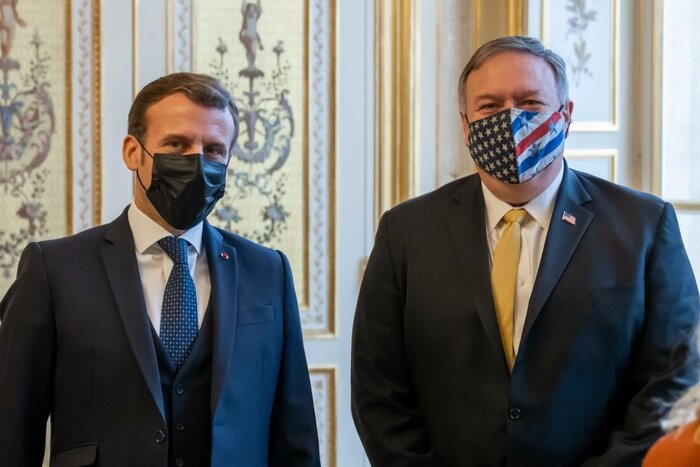Morteza Makki said Pompeo’s visit to Europe and the occupied Palestinian territories are not justifiable rationally, politically and diplomatically as a new president has been elected in office in the US and a transition is taking place in various administrative departments including the US Department of State.
“Pompeo’s tour does not appear to create a change in the American foreign policy under the present circumstances; therefore, Pompeo is most probably trying to destroy more bridges for the next US administration and foreign secretary so that Joe Biden would be unable to execute his programs and foreign policy particularly towards the developments in the Middle East.”
Referring to the long-term criticisms by Democrats of the foreign policy of the Trump administration in the Middle East, he said that European officials have expressed open and clear opposition to Trump policies in the region especially in connection with his policies towards the occupied Palestinian territories, relocation of the American embassy to Beit-ul-Moqaddas and the accession of the West Bank to Israel.
Comparing the policies of Biden to Trump in the Middle East and particularly towards Palestine, Makki said: “Biden is not expected to change the course taken by Trump in occupied Palestine because the security of the Zionist regime has been always one of the main pillars of the American foreign policy.”
He, however, said there is definitely going to be some frictions between Joe Biden and Benjamin Netanyahu.
Makki said Pompeo was not properly received in some European countries including France because “Europeans are looking forward to the termination of the Trump term in office and only welcomed Pompeo in line with diplomatic protocols and etiquette.
Asked about the reaction of Trump to the outcome of the recent US presidential elections, he said: “the Trump administration is transiting to Biden’s even though Trump has not yet conceded and Pompeo has said Trump will attend the inauguration ceremony only if he is re-elected as President of the United States.”
This suggests that Trump does not want to accept many political realities of American society.
“In this respect, we witnessed that Trump and Pompeo, in their last days in office, imposed new sanctions on the officials and institutes of the Islamic Republic of Iran even though these sanctions are purely for psychological and propaganda purposes and according to many American officials have lost their credibility as nothing more is left in practice to sanction Iran.”
Asked about the reactions by European countries to the victory of Biden and his probable return to the nuclear deal, Makki said that Europeans had already declared their positions on the JCPOA.
“The Europeans were opposed to the US withdrawal from the nuclear deal; during the past two years, they have indicated the political will of preserving the deal. Moreover, they voted against the United States three times in the UN Security Council. Therefore, we can conclude that Europeans are definitely seeking to preserve the JCPOA. However, it remains unclear yet if Biden’s America can easily return to the deal given the hurdles created by Trump. In fact, we should wait and see how Biden is going to fulfil his election campaign promises on the return of the US government to the nuclear deal with Iran,” he said, adding that Biden’s approach towards the JCPOA would be definitely different from that Trump’s and there are spaces and chances for Europe to mediate to return America to the JCPOA.
Makki said there are a lot of ambiguities on how the US should return to the nuclear deal as Biden does not appear to be willing to easily scrap the maximum pressure policy of the Trump administration against the Islamic Republic of Iran.
“Therefore, Biden is highly likely to pose a series of conditions which are going to be categorically rejected by Iran. Of course, this is only a guess and we should wait and see how the political-security team of Biden would want to return Washington to the nuclear deal.”










0 Comments